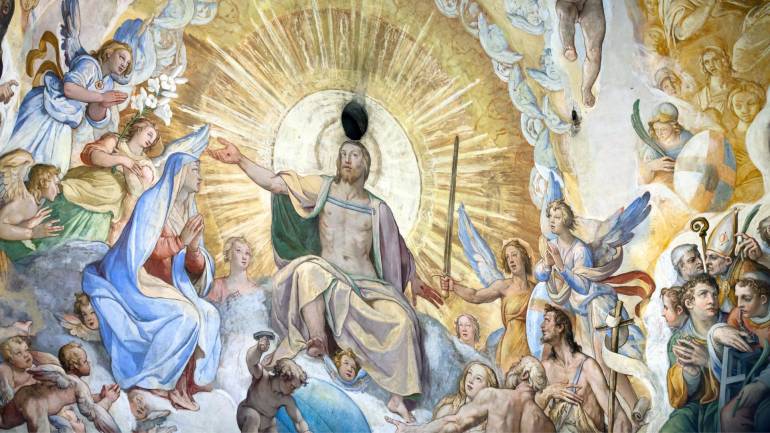God of the Living, Not of the Dead

During a pilgrimage with a group of Christians, one of the most beautiful experiences, beyond the sacred sites, was the fellowship we shared on the bus. Each day, as we passed around cookies and savories, we also shared stories, laughter, and faith. It reminded me of the story of the long spoons.
A man was shown two rooms. In both, people sat around a pot of delicious stew, each holding a long-handled spoon. In the first room, everyone joyfully fed one another across the table; this, he was told, was heaven. In the second, each person struggled to feed themselves, unable to reach their own mouths with the long spoons. This, he was told, was hell.
The story beautifully reveals that heaven and hell are not just distant places; they begin in how we live and love here and now.
The Church teaches that Heaven is eternal communion with God, a joy reserved for those who die in His friendship and are perfectly purified. Purgatory is the final purification for souls who still need to be made ready for heaven, and Hell is the state of definitive separation from God, a result of one’s own free choice to reject His love. Until our final moment, however, God offers us His light, inviting conversion and reconciliation.
I came to understand this truth through a personal journey of loss and grace. My father passed away when I was nineteen. His death left me crushed, lonely, and abandoned. My faith at that time was only nominal, and grief hardened my heart. Two years later, through a Life in the Spirit Seminar in my parish, I encountered Jesus in a new and personal way. Yet, despite my newfound faith, I realized later that I had not truly surrendered the pain of my father’s death to God.
Years later, during an inner healing prayer session, a priest gently invited me to forgive my father for leaving me so early on in life and to entrust his death to the Lord. I resisted at first, unable to speak the words. Deep down, I had locked away the memory, unwilling to face it or to allow God’s grace to touch it. Patiently, the priest led me in prayer until I could whisper words of surrender and forgiveness.
That night, I felt something shift within me. The next morning, I woke up light and free, my grief lifted, my heart filled with peace. As I prayed, a passage from Scripture came alive:
“God said, ‘I am the God of Abraham, the God of Isaac, and the God of Jacob.’ He is not God of the dead, but of the living.” (Mark 12:26–27)
The words pierced my heart. My father was not gone; he lives in the presence of the Living God. The truth set me free. As the prophet Isaiah says, “The Lord will remove the veil covering all peoples” (Is 25:7), indeed, my eyes were opened to the hope of eternal life.
At the tomb of Lazarus, Jesus wept with those who mourned. His tears show us that He shares in our pain. Yet He also declares, “I am the Resurrection and the Life.” Resurrection is not only a promise for those who have died, it is also God’s gift for us who grieve, a call to trust that life does not end in the grave.
Our Living Savior is near to those who wait in faith. He turns mourning into joy, despair into hope, and loss into deeper love. As Scripture reminds us, “Let us be glad and rejoice in His salvation.” (Isaiah 25:9)








